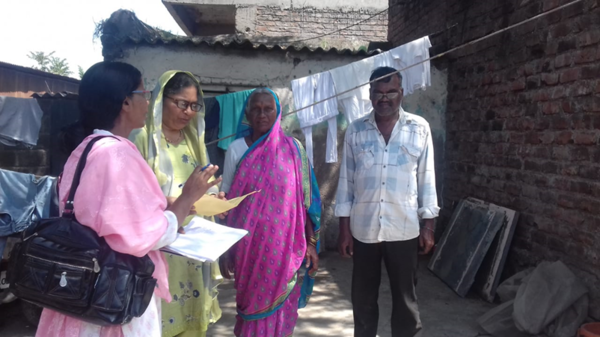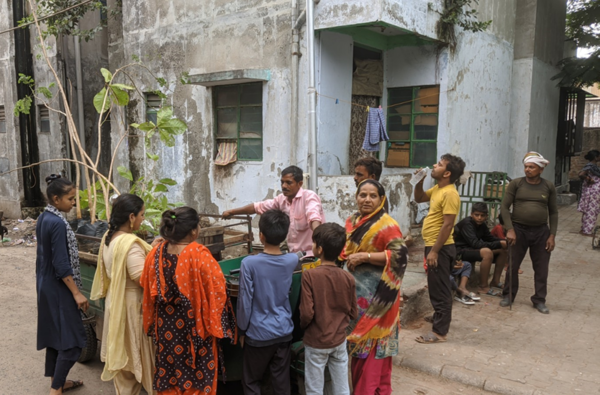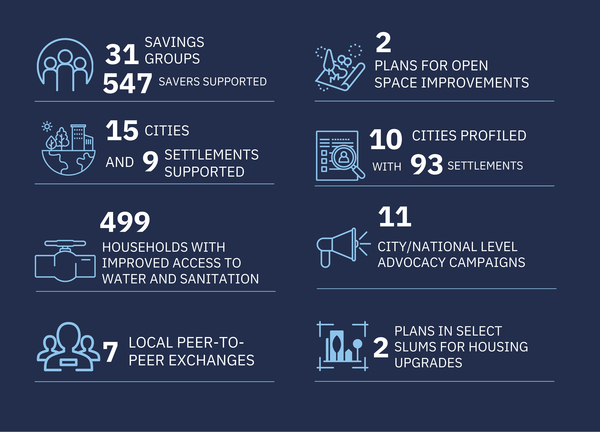- Who We Are
- How We Work
- Regional / Country Initiatives
- Legacy
- Core Themes
- Working Groups
- Portfolio & Results
- Newsroom
- Resources
India: Community Led Action and Resilience

Project Overview
Urban poor communities in India face significant challenges in accessing basic municipal services and adequate housing. Despite progress in addressing these issues, the ongoing health challenges, exacerbated by the pandemic, underscore the critical need to address the often-overlooked health concerns in slum upgrading initiatives.
This project aims to strengthen preventive health measures and improve access to healthcare services, alongside enhancing access to basic municipal services such as water, sanitation, nutrition in slum settlements, and improved access to open spaces in relocation colonies. Additionally, it provides livelihood support through the distribution of livelihood kits to impoverished families. The Society for the Promotion of Area Resource Centres (SPARC), in collaboration with the National Slum Dwellers Federation (NSDF) and Mahila Milan, is actively promoting community resilience across eight regions. Focused efforts are concentrated in 20 cities and approximately 50-100 slum settlements across India, utilising existing infrastructure such as resource centres, community federations, and savings groups.
This project is part of the Building Resilience in Informal Settlements Programme, a partnership between Cities Alliance and Slum Dwellers International (SDI), funded by the Swedish International Development Cooperation Agency (Sida), to support civil society organisations working in informal settlements.

Initial Project Results: 2022-2024
Savings and livelihood support initiatives have made significant progress, with mobilization efforts expanding to 31 savings groups. Livelihood support, including skill documentation and equipment distribution, has benefited 547 vulnerable individuals.
In Ahmedabad, the project focused on reworking open spaces through two planned phases. Phase one involved planting trees to address a primary concern for women and children regarding shade. Phase two includes enhancing space around the Anganwadi and central open ground to create more welcoming community areas.
In Mumbai, the project targeted the MHADA colony at Vashi Naka. Neglected spaces used for waste disposal were earmarked for transformation. Design options, developed based on community input, include play spaces and other programmatic interventions. Further community meetings are planned for input, with subsequent phases focusing on implementation.
The Jaga Mission in Odisha empowered slum dwellers by providing land rights and financial aid for housing construction. By October 2023, around 65,000 slum dwellers across five cities received Land Rights Certificates (LRC), while basic facilities such as roads, tap water, toilets, and street lights were provided to transform slums into liveable habitats.
Additionally, in partnership with the Ahmednagar Municipal Corporation, efforts were made to upgrade housing in slums. Mahila Milan identified slums on municipal lands and facilitated housing cooperatives, with community meetings held to identify eligible households for participation in housing upgrade schemes.

Key Achievements: 2022-2024

